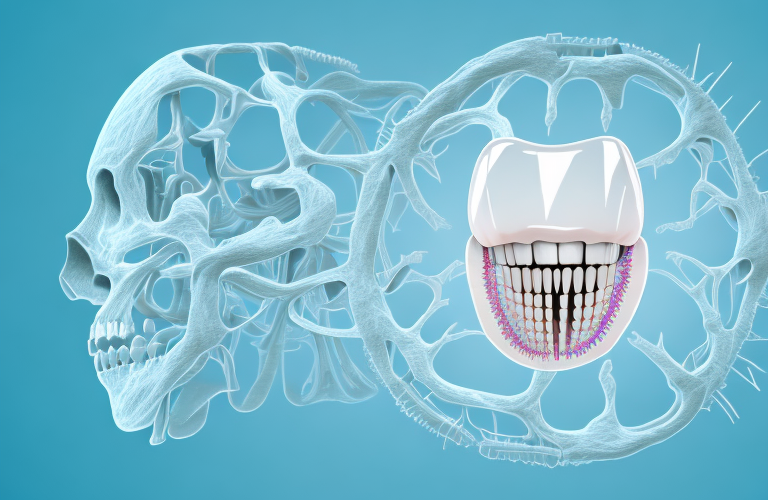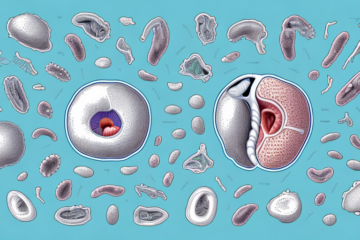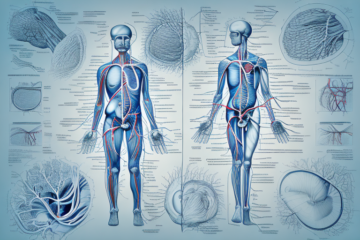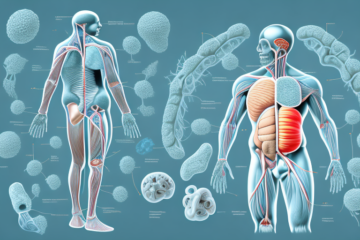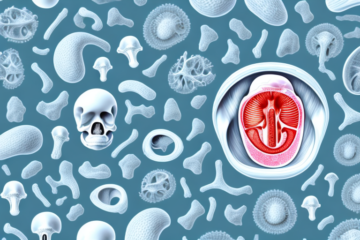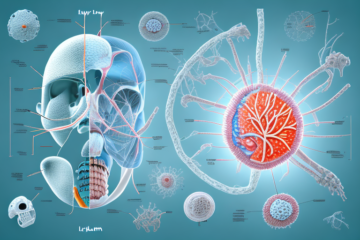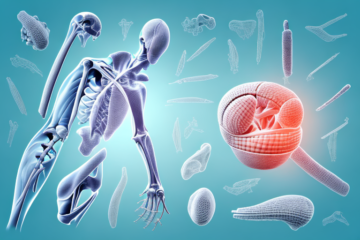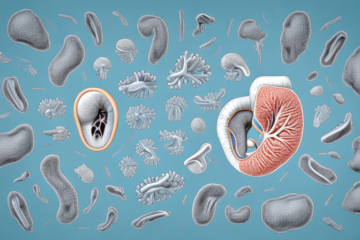Teeth are not only essential for chewing and speech, but they also play a crucial role in the digestive system. There are four different types of teeth, each with a specific function: Incisors in the front of the mouth are used for biting and cutting food; the canines are used for tearing; premolars, located between the canines and molars, are used for crushing and grinding; and molars, at the back of the mouth, are used for chewing and grinding food.
The Role of Teeth in the Digestive System
Teeth are the first step in the process of digestion, breaking down food into smaller, easier-to-digest pieces. The first stage of digestion begins when you start chewing and saliva helps to break down the food. This helps in the absorption of nutrients by the body. Without the teeth and proper chewing, food wouldn’t be broken down properly, leading to digestive issues and malnourishment.
In addition to breaking down food, teeth also play a crucial role in speech. The tongue, lips, and teeth work together to form sounds and words. Without teeth, speech can be difficult to understand and articulate.
It’s important to take care of your teeth to ensure proper digestion and speech. Regular brushing, flossing, and dental check-ups can prevent tooth decay and gum disease, which can lead to tooth loss and other health issues.
Different Types of Teeth and Their Functions
Each type of tooth has its specific role to play in the breakdown of food. Incisors are used for biting into food, canines are used for tearing flesh, premolars help in crushing and grinding foods, and the molars play a role in the mastication of food.
In addition to their primary functions, teeth also play a crucial role in speech. The position of the tongue against the teeth helps in the formation of certain sounds, such as “th” and “f”. Teeth also contribute to the aesthetics of a person’s smile, and their appearance can affect a person’s self-confidence and social interactions.
However, not all individuals have a full set of teeth. Tooth loss can occur due to various reasons, such as decay, injury, or genetics. Missing teeth can affect a person’s ability to chew and speak properly, and can also lead to bone loss in the jaw. Dental implants and dentures are common solutions for replacing missing teeth and restoring oral function and aesthetics.
The Anatomy of a Tooth: Enamel, Dentin, Pulp and Roots
A tooth is made up of multiple components, including enamel, dentin, pulp, and roots. Enamel forms the outer layer of the tooth, and it is the hardest substance in the human body. Dentin makes up the bulk of the tooth structure and contains tiny tubes that connect the inside of the tooth to the nerve endings. The pulp contains blood vessels and nerves and is located in the center of the tooth. The roots are located below the gumline, anchoring the tooth securely in the jaw bone.
It is important to take care of your teeth to prevent decay and damage to these important components. Brushing twice a day, flossing daily, and visiting the dentist regularly can help maintain the health of your teeth and prevent issues such as cavities and gum disease. Additionally, consuming a balanced diet and limiting sugary and acidic foods and drinks can also help protect your teeth and keep them strong.
How Teeth Develop and Grow
Teeth begin to form before birth, with the primary teeth developing during the first six months of life. Children have twenty primary teeth that start to fall out around the age of six; they are then replaced by thirty-two adult teeth. Once a person reaches adulthood, the teeth have grown to their full size and shape. The third molars typically appear between the age of 17 and 25, and they are commonly referred to as wisdom teeth.
It is important to take care of your teeth from a young age to ensure they develop properly. This includes regular brushing and flossing, as well as visiting the dentist for check-ups and cleanings. Poor dental hygiene can lead to tooth decay and gum disease, which can cause pain and even tooth loss.
In addition to proper dental care, diet can also play a role in the development and growth of teeth. Foods high in calcium, such as milk and cheese, can help strengthen teeth and bones. On the other hand, sugary and acidic foods and drinks can erode tooth enamel and lead to cavities.
Common Dental Problems: Cavities, Gum Disease, and Tooth Decay
Poor oral hygiene and diet often contribute to common dental problems like cavities, gum disease, and tooth decay. Cavities occur when acid-producing bacteria break down the enamel on the tooth, causing a hole to form. Gum disease and tooth decay result when plaque builds up on the tooth, leading to inflammation, irritation, and eventual tooth loss.
Another common dental problem is tooth sensitivity. This occurs when the protective layer of enamel on the tooth wears down, exposing the sensitive nerves underneath. This can cause discomfort or pain when consuming hot or cold foods and drinks. Tooth sensitivity can be caused by a variety of factors, including brushing too hard, grinding teeth, or using certain whitening products.
In addition, oral cancer is a serious dental problem that can be life-threatening if not detected early. Oral cancer can affect the lips, tongue, cheeks, and throat, and is often caused by tobacco use, excessive alcohol consumption, and exposure to the human papillomavirus (HPV). Regular dental check-ups can help detect oral cancer early, increasing the chances of successful treatment.
Oral Hygiene: Brushing, Flossing, and Mouthwash
To maintain proper oral hygiene, it is essential to brush teeth twice a day with fluoride toothpaste, floss once a day to remove food particles between teeth, and use mouthwash to kill harmful bacteria.
In addition to brushing, flossing, and using mouthwash, it is also important to visit the dentist regularly for check-ups and cleanings. Dentists can detect and treat any oral health issues before they become more serious problems. It is recommended to visit the dentist every six months, or more frequently if you have specific dental concerns.
The Importance of Regular Dental Check-Ups and Cleanings
Regular dental check-ups and cleanings help to prevent dental problems from occurring and detect issues before they become severe. A professional cleaning removes any plaque or tartar buildup that brushing and flossing cannot reach.
In addition to preventing dental problems, regular check-ups and cleanings can also improve your overall health. Studies have shown that poor oral health can lead to other health issues such as heart disease, diabetes, and respiratory infections. By maintaining good oral hygiene, you can reduce your risk of developing these conditions.
Furthermore, dental check-ups provide an opportunity for your dentist to examine your mouth for any signs of oral cancer. Early detection of oral cancer can greatly increase the chances of successful treatment and recovery. Your dentist will perform a thorough examination of your mouth, including your tongue, gums, and throat, to check for any abnormalities.
Cosmetic Dentistry: Teeth Whitening, Veneers, and Braces
Cosmetic dentistry offers many options to improve the appearance of teeth and correct misalignment. Teeth whitening, veneers, and braces can help to improve the appearance of teeth, boost confidence, and even help with proper functioning of teeth.
Teeth whitening is a popular cosmetic dentistry procedure that can help to remove stains and discoloration from teeth. This procedure can be done in-office or with at-home kits, and can result in a brighter, more youthful smile. However, it is important to note that teeth whitening may not be effective for all types of discoloration, such as discoloration caused by certain medications or genetics.
Veneers are another cosmetic dentistry option that can help to improve the appearance of teeth. Veneers are thin, custom-made shells that are placed over the front of teeth to improve their shape, size, and color. They can be used to correct a variety of dental issues, such as gaps, chips, and misshapen teeth. Veneers are a long-lasting solution that can provide a natural-looking, beautiful smile.
The Link between Oral Health and Overall Health: Diabetes, Heart Disease, and More
Poor oral health can lead to other health complications, including heart disease, stroke, and diabetes. Research shows that there is a strong link between oral health and overall health, which is why maintaining oral hygiene is essential for good overall health.
One of the reasons for the link between oral health and overall health is the presence of harmful bacteria in the mouth. When left unchecked, these bacteria can enter the bloodstream and cause inflammation in other parts of the body, leading to various health problems. In addition, poor oral health can also affect a person’s ability to eat and speak properly, which can impact their quality of life.
Regular dental check-ups and cleanings, along with proper brushing and flossing techniques, can help prevent oral health problems and reduce the risk of developing other health complications. It is important to prioritize oral hygiene as part of a comprehensive approach to maintaining good overall health.
Dental Emergencies: Chipped or Broken Teeth, Toothaches, and Abscesses
Dental emergencies like chipped, broken, or knocked out teeth, toothaches, and abscesses require urgent attention. It is essential to see an emergency dentist as soon as possible to prevent further damage and avoid potential long-term problems.
One common dental emergency is a knocked-out tooth. If a tooth is knocked out, it is important to handle it carefully and see a dentist immediately. In some cases, the tooth can be re-implanted if it is properly preserved and treated promptly. It is recommended to keep the tooth moist by placing it in milk or saliva until you can see a dentist.
Tooth Replacement Options: Implants, Bridges, and Dentures
If a tooth is missing or damaged beyond repair, there are multiple replacement options available. Dental implants, bridges, and dentures are some of the options that can restore proper functioning of teeth and provide aesthetics.
Dental implants are a popular tooth replacement option that involves surgically placing a titanium post into the jawbone to support a replacement tooth. This option is known for its durability and natural appearance. Bridges, on the other hand, involve attaching a replacement tooth to adjacent teeth using dental crowns. This option is ideal for those who have one or two missing teeth. Dentures are removable appliances that can replace multiple missing teeth. They come in different types, including partial and full dentures, and can be customized to fit the patient’s mouth comfortably.
Nutrition for Healthy Teeth: Calcium-Rich Foods and Avoiding Sugar
Nutrition plays an integral part in maintaining healthy and strong teeth. Foods that are high in calcium, such as cheese and milk, promote healthy teeth and bones. Sugary foods, on the other hand, can lead to the growth of bacteria that cause cavities and tooth decay.
In addition to calcium-rich foods, it is also important to consume foods that are high in vitamin D. This vitamin helps the body absorb calcium, which is essential for strong teeth and bones. Foods such as fatty fish, egg yolks, and fortified cereals are good sources of vitamin D.
Another important nutrient for dental health is phosphorus. This mineral works with calcium to build strong teeth and bones. Foods that are high in phosphorus include meat, poultry, fish, and dairy products.
Natural Remedies for Tooth Pain and Inflammation
There are many natural remedies for tooth pain and inflammation, including clove, black tea, and saltwater rinses. These remedies can provide temporary relief of minor pain and inflammation before professional dental treatment.
In addition to these natural remedies, it is important to maintain good oral hygiene practices to prevent tooth pain and inflammation. This includes brushing twice a day, flossing daily, and visiting the dentist regularly for check-ups and cleanings. Avoiding sugary and acidic foods and drinks can also help prevent tooth decay and inflammation.
Tips for Keeping Your Child’s Teeth Healthy from Infancy to Adolescence
It is crucial to start practicing good oral hygiene habits from infancy to adolescence. This includes cleaning gums, teeth, and tongue with a soft damp cloth until teeth start to erupt, encouraging proper brushing, flossing, and regular dental check-ups. It also includes avoiding sugary foods and drinks and making healthy food choices.
Another important aspect of maintaining good oral health for children is the use of fluoride. Fluoride helps to strengthen tooth enamel and prevent tooth decay. It can be found in toothpaste, mouthwash, and even in some community water supplies. However, it is important to use fluoride products in moderation and under the guidance of a dental professional.
In addition to regular dental check-ups, it is important to be aware of any changes in your child’s oral health. This includes monitoring for signs of tooth decay, such as discoloration or sensitivity, and addressing any concerns with your child’s dentist. Early detection and treatment of dental issues can prevent more serious problems from developing in the future.
Conclusion
Proper dental hygiene is essential not only for the maintenance of healthy teeth but also for overall good health. Understanding the role, function, and anatomy of teeth helps one to understand the importance of proper dental care and treatment when necessary. It is essential to establish good oral hygiene practices and visit a dentist regularly for cleanings, exams, and treatment of any potential dental issues.
In addition to regular dental check-ups, there are several other steps you can take to maintain good oral health. One of the most important is to brush your teeth twice a day with fluoride toothpaste. Flossing daily is also crucial for removing plaque and food particles from between teeth and along the gum line. Additionally, eating a balanced diet that is low in sugar and high in nutrients can help keep your teeth and gums healthy.
It is also important to be aware of the signs and symptoms of dental problems, such as tooth sensitivity, bleeding gums, or persistent bad breath. If you experience any of these issues, it is important to schedule an appointment with your dentist as soon as possible to prevent further damage or complications.

